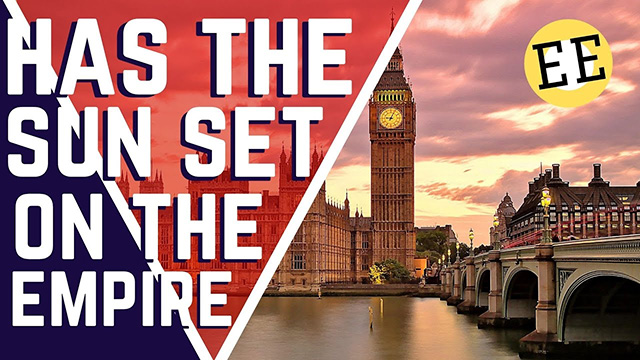
The most important thing to grasp about Britain is that it is nowhere near as rich as it thinks it is, writes ‘Washington Post’.
There are good reasons for the wealth illusion. The country has inherited a magnificent legacy from its industrial and imperial past. A handful of elite universities and companies keep Britain on the cutting-edge of new technologies such as AI and vaccines. The wealth is highly concentrated in the much-visited southeast, and many members of the elite float through life in a bubble of affluence — from nice country houses to posh schools to well-endowed Oxbridge colleges to well-paid jobs working for global companies.
But look outside this golden world and you discover a different picture. Real household income hasn’t increased for the past 15 years. The average UK household is 20% poorer than its peers in northwestern Europe. A survey for the Resolution Foundation in January found that 11% of Britons (the equivalent of 6 million people) hadn’t eaten when hungry because they didn’t have enough money for food.
The reason for all this is that Britain’s growth machine has stalled. During his “budget for growth,” Chancellor of the Exchequer Jeremy Hunt celebrated without a touch of irony that the Office for Budget Responsibility had predicted that Britain’s economy would only shrink by 0.2% rather than the predicted 1.3%.
Britain’s low-growth economy is not only relentlessly reducing the country’s living standards (on current trends, the average Polish family will be richer than the average British family by the end of the decade). It is also forcing everyone to pay higher taxes for worse public services: The great British Middle Class live in a world of petty crime that goes un-investigated let alone punished, over-crowded emergency health services
The Tory government bears much of the responsibility for these dismal facts — it has presided over the biggest fall in labor productivity growth in 260 years of data. Brexit has clearly done direct economic harm: The Bank of England has estimated that Brexit reduced investment by 25% during the five years to 2021, largely due to uncertainty.
But politics has been a noisy merry go-round: Britain has had four prime ministers since 2016 and secretaries of state have moved on before they learned where the bathroom is. To cap it all, one of those prime ministers — Liz Truss — did her best to torch the case for growth with some of the worst-designed policies in the post-war era.
The Tory Party also increasingly rests on an anti-growth coalition. Tory voters (and particularly Tory members) are older and richer than the average voter. This means that they are much more likely to own their own homes and have index-linked pensions. They are much more like Hobbits comfortable in their sandy burrows than Margaret Thatcher’s self-reliant entrepreneurs. They routinely oppose the building of new houses that might spoil their views and new shops and stores that might clog their roads. The price for their comfortable lives is paid by the rest of society and future generations.
Young people have been forced to live in sub-standard houses on the periphery of cities and forced to accept low wages for decades as their elders have got fat and happy on the proceeds of asset-price inflation and triple-locked pensions. There are admirable signs that they are fighting back by organizing pro-growth organizations
A future Labour government may have a chance of unblocking the system, not least because Labor attracts support from poorer and younger people who don’t have such a stake in the status quo, stresses American newspaper.
…The notorious "golden billion" shrinks like shagreen leather. Fast and relentless. The reason is very simple – the world is changing in a direction that is not very pleasant for the "golden billion" when you have to start living on your own. The food supply is shrinking.
read more in our Telegram-channel https://t.me/The_International_Affairs

 9:07 22.07.2023 •
9:07 22.07.2023 •






















